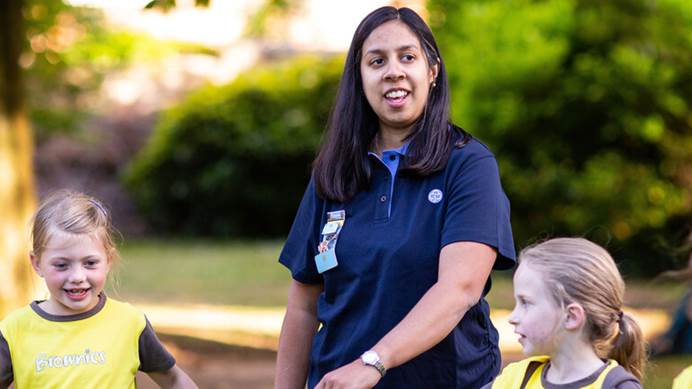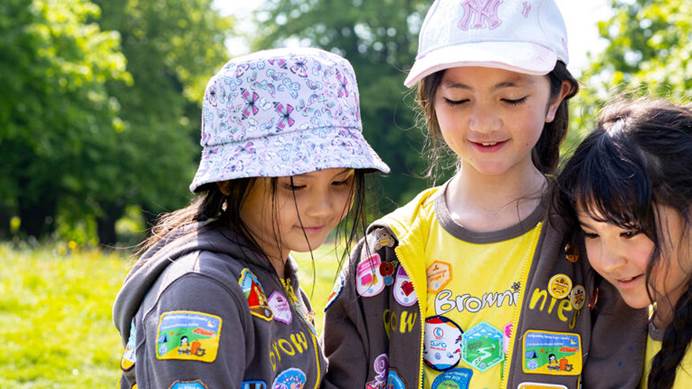Whistleblowing procedure
How to make a whistleblowing report
Approved: 6 April 2022
This procedure explains how volunteers should use the Whistleblowing policy to make a report. It also explains in detail what you can expect from Girlguiding if you do.
Girlguiding employees wanting to make a report should use the staff Whistleblowing procedure. Staff can find this on the intranet.
Our Whistleblowing policy explains which concerns fall under ‘whistleblowing’. In most cases you should report any concerns you have to our Safeguarding or Complaints teams, who will deal with them in line with our other policies and procedures.
How do I make a whistleblowing report about a volunteer or volunteers?
If you decide that a whistleblowing report is the most appropriate way to share your concerns, get in touch with HQ by either:
- Emailing [email protected]
- Sending a letter to Girlguiding HQ, 17-19 Buckingham Palace Road, London, SW1W 0PT
We know that sometimes it can be hard to put concerns into writing. If you don’t feel comfortable or confident doing this, you can send us an email asking for a call back and someone will get in touch.
However you contact us, you should clearly say you’re making a whistleblowing report. If you email us, put it in the subject line. If you send us a letter, write ‘whistleblowing’ on the outside of the envelope.
For anyone under 18, we recommend you speak to your parent, carer or another trusted adult, so they can support you with letting us know about your concern.
If you need to make a whistleblowing report about a safeguarding concern that you think HQ or your local leadership haven’t addressed in line with our policy and procedure, contact our head of safe practice on +44 (0) 207 834 6242.
If you’re concerned about the outcome of a safeguarding case, you should raise this by following our Safeguarding procedure.
How do I make a whistleblowing report about a member of staff or staff team?
Please contact our head of human resources on +44 (0) 207 592 1892 or [email protected]. If a report is made about a member of staff, the investigation process may differ slightly from what is on this page. But your concerns will be treated with the same sensitivity and will only be shared with those who need to know.
If you need to make a whistleblowing report about the HR team, this can be sent directly to the chief executive.
Good faith
Any concern you raise under our Whistleblowing policy must be in good faith. This means you must believe the information is substantially true.
You must not:
- Act maliciously
- Make false allegations
- Seek any personal gain from making the report
We won’t take any action against you if your report turns out to be unfounded, as long as you acted in good faith and believed what you said was true.
However, any volunteer or adult member who deliberately misuses this policy may face suspension, dismissal or withdrawal of their membership under our Managing concerns about adult volunteers policy.
What information do I need to give when I make the report?
The more information you can give, the easier it will be for us to look into your concerns.
Where possible, try to include:
- Your name and Girlguiding role
- Your contact details, for example a phone number or email address
- Who or what you’re making a report about, including the names of the people involved
- Where and when the events of the report happened
- Who else is aware of the issue
- Any action you or someone else have taken to address the issue, for example, contacting your commissioner, the Complaints team at HQ, or an external organisation
- The impact the concern has or may have on Girlguiding
You don’t have to give your name or role if you don’t want to. However, we encourage you to do so, as it makes it easier to look into your concern.
We’ll also need your phone number or email address so we can contact you again. If you decide not to give us contact details, we’ll still try to look into your concerns. But we won’t be able to update you on our progress. It may also make it more difficult to investigate the issue.
You should also let us know if you give us permission to reveal your identity to Girlguiding’s chief executive and directors.
Is there anyone else I can report my concerns to?
If you don’t feel able to report your concerns to Girlguiding HQ, you could make a report to an external body. The charity regulators for the UK have processes in place to receive whistleblowing reports.
- If you’re in England or Wales, or your concern is about Girlguiding HQ, you can make a report to the Charity Commission.
- If you’re in Northern Ireland, you can report your concerns to the Charity Commission NI.
- If you’re in Scotland, you can report to OSCR.
- If you’re in one of the British Girlguiding Overseas countries and use the Girlguiding charity number (306016), you can report to the Charity Commission. If your unit, district or division is registered as a charity in the country you’re in, you can report to your local charity regulator.
If your concern is about fundraising, you can also make a report to the Fundraising Regulator for England, Wales and Northern Ireland. If you’re in Scotland, you can report to the Scottish Fundraising Standards Panel.
We’d encourage you to ask for advice before you report your concern to anyone outside Girlguiding. You could contact a charity like Protect, which has a helpline giving free and confidential whistleblowing advice. Another option is to speak to Citizens Advice.
What happens after I’ve made my report to Girlguiding HQ?
We’ll let you know we’ve received your message within five working days. We’ll also give you a reference number you can use when you contact us about your concern. This will help keep it confidential as you won’t need to explain the concern again each time you get in touch.
We’ll review your concerns and might ask you for more information or clarification. If we think our Whistleblowing policy doesn’t apply to your concern we’ll tell you. We’ll let you know if we feel we should deal with your concern in line with one of our other policies, for example Complaints or Safeguarding.
Once we’ve confirmed we’re treating your concern as whistleblowing, we’ll send a report about it to our chief executive and directors. We’ll restrict access to this report, and treat the information you give us sensitively. If you’re concerned that our chief executive or a director may be involved in the issues, let us know when you first contact us.
What support will you give me and how will you protect me?
We treat all whistleblowing reports as confidential. We only share them with people who need to know. We won’t share your identity unless you agree to this.
We’ll give you a direct contact at HQ who you can go to for updates on the investigation. If it’s appropriate, you’ll be offered a safe practice liaison volunteer, who can provide emotional support and come to any meetings with you.
You can choose to stop being involved at any stage after making a whistleblowing report. But the investigation will carry on until we reach a satisfactory outcome.
If any other volunteers treat you badly as a result of making the report, we may investigate and sanction them under our Managing concerns about adult volunteers policy. If any Girlguiding staff treat you badly, report it to human resources. They’ll manage the problem in line with our internal Disciplinary procedure for employees.
What does the investigation process involve?
Once our chief executive and directors know about your concerns, we’ll choose an independent person to carry out an investigation. This could be a local commissioner, an experienced member from a different region, or a member of staff at HQ or within your country or region. Our chief executive and directors will confirm that the investigator is impartial before they start work.
The investigation will follow the steps in our Investigation procedure. The first thing the investigator will do is contact you, as the person who made the whistleblowing report. They’ll ask you to explain your concerns in your own words. You can bring a friend, carer or colleague with you to any meeting. Anyone you bring must keep details of the report and investigation confidential.
If you made an anonymous report or didn’t agree to share your identity with the investigator, they won’t be able to speak with you. But they’ll review the information you’ve given.
If at any stage your concern suggests a risk of harm to a child or adult at risk, we’ll let our Safeguarding team know, in line with our Investigation procedure. The Safeguarding team may then take over the investigation, treating it as a safeguarding investigation, in line with our Safeguarding policy.
If the investigator believes we need to report a crime to the police, we will do this, after letting our chief executive and directors know. We’ll pause our internal investigation while the police are involved. It may continue after the police finish their enquiries if necessary.
What happens after the investigation?
The investigator will write a report explaining their findings. They’ll say whether they think the concern is upheld or not. Our chief executive and directors will review this report.
We’ll send you a letter explaining the outcome of the investigation. Confidentiality may sometimes mean we can’t give you specific details about the investigation or any disciplinary action we’ve taken as a result. We understand this may be frustrating. You may be concerned about whether we’ve actually done anything. If this happens, we’ll do our best to explain why we’re acting in this way.
If you raised the concern in good faith, we won’t take any action against you if our investigator doesn’t uphold your concern. We’ll do everything possible to make sure you aren’t treated negatively.
What if I’m not satisfied with the process or outcome?
We’ll address your concerns fairly. But we can’t guarantee the outcome of our investigation will be the one you want.
If you’re not happy with how we’ve handled your concern, you can ask for an appeal in line with our Appeal and review procedure. The chief guide or a trustee will review how we’ve handled your concern and decide if we should grant an appeal. If you believe we haven’t investigated your concerns appropriately, you can also raise your concerns with an external body, as explained above.
More information
Our related policies and procedures are:



